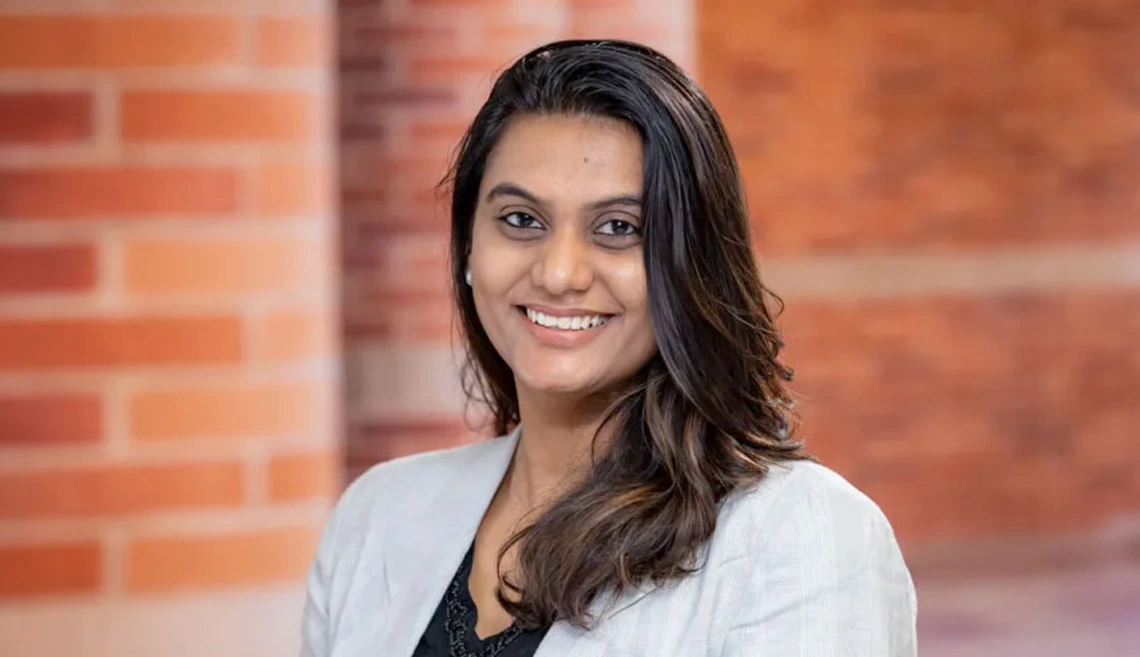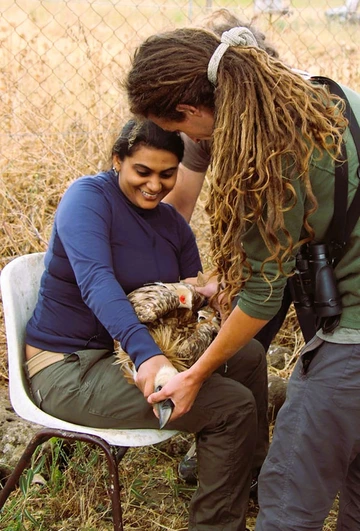The Natural World Offers Elegant Solutions: Nitika Sharma, Assistant Professor of Practice
INFOSCI FACULTY PROFILE

Nitika Sharma, Assistant Professor of Practice, College of Information Science at the University of Arizona.
The natural world continuously offers elegant solutions to complex computing problems, and I find it both humbling and thrilling to uncover and understand these processes.
Dr. Nitika Sharma, an assistant professor of practice who earned her PhD from the Indian Institute of Science in 2019, joined the College of Information Science in Fall 2024 following two postdoctoral fellowships at UCLA. Her research bridges ecology, evolution, mathematics and data. Learn more about Professor Sharma, including her advice to students about data science and public interest, in this faculty profile.
What brought you to the University of Arizona College of Information Science? Tell us a bit about your work prior to joining the college.
My passion for teaching, combined with a deep love for coding and problem-solving, found the perfect home at the College of Information Science. I was particularly attracted to the supportive and inclusive environment that I had heard so much about within the department. Before arriving at the University of Arizona, I completed two postdoctoral fellowships at UCLA. During the first, I delved into ecology and evolution, studying the movement ecology and socio-spatial multilayer networks of griffon vultures in Israel as part of their conservation efforts. In my second postdoc, I shifted focus to data analysis, where I scraped and analyzed publicly available SEC data and created interactive Rshiny dashboards to assess the ESG performance of S&P 500 companies, ultimately hoping to help stakeholders make informed investment decisions as part of the “Open for Good” group at UCLA.
What is your current research, and what most excites you about this work?
My current research dives into the fascinating world of spatio-temporal division of labor, inspired by nature’s solution to the traveling salesman problem. In this context, I’m studying paper wasps, where stationary larvae are akin to cities that need to be visited, and the adult wasps distribute food to them. This parallels the classic routing problem in mathematics, where the complexity escalates as the number of destinations increases. What excites me most is how evolution has already mastered these challenges—solving what seems insurmountable to us with incredible efficiency. The natural world continuously offers elegant solutions to complex computing problems, and I find it both humbling and thrilling to uncover and understand these processes.
Tell us about your academic service work.
I often review research articles in the realm of network science, spatial analysis and behavioral ecology but am presently restricted in time owing to caring for an infant who keeps my hands full.

Nitika Sharma learning how to handle a vulture from her collaborator Gideon, in Israel, as part of her postdoctoral research on griffon vulture movement ecology. Photo by NP Wollman.
What InfoSci courses do you teach, and what do you most enjoy about teaching?
This semester, I'm teaching two courses: ISTA 321: Data Mining and Discovery and INFO 536: Data Science and Public Interest. One of the most rewarding aspects of teaching ISTA 321 is helping undergraduates, who may initially feel intimidated by programming, to not only engage with the material but also discover how enjoyable coding can be. In INFO 536, I particularly enjoy our discussions on social activism, inclusion and data ethics—topics that spark deep, meaningful conversations and inspire students to think critically about the role of data in society.
How do you bring your research into your teaching?
I draw examples from my research experiences and life experiences alike to help students make sense of data more tangibly.
How do you engage with students to foster their academic and professional growth?
I encourage them to communicate with me without being shy.
Beyond teaching and research, what are your passions?
I really enjoy birdwatching, spending time in the wild, swimming and playing with my infant daughter.
What advice do you have for InfoSci students?
Embrace programming as a powerful tool—it’s a gateway to solving complex problems and unlocking new possibilities. However, always remember that with great power comes great responsibility. Use your skills ethically, being mindful of the potential harm that can arise when technology is mistakenly viewed as neutral or unbiased.
Learn more about Nitika Sharma on her faculty page, or explore ways you can support the dynamic, student-invested faculty of the College of Information Science.

